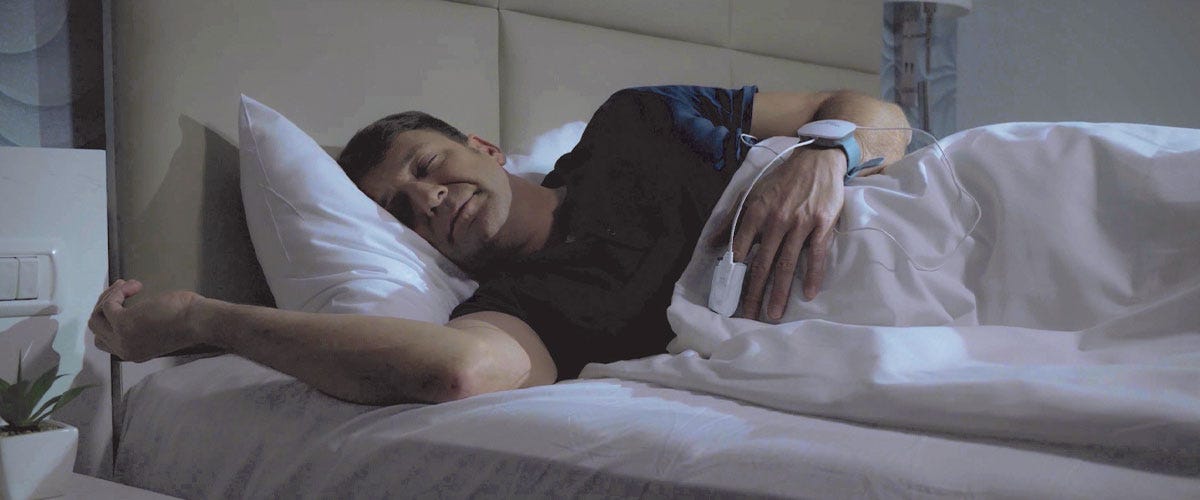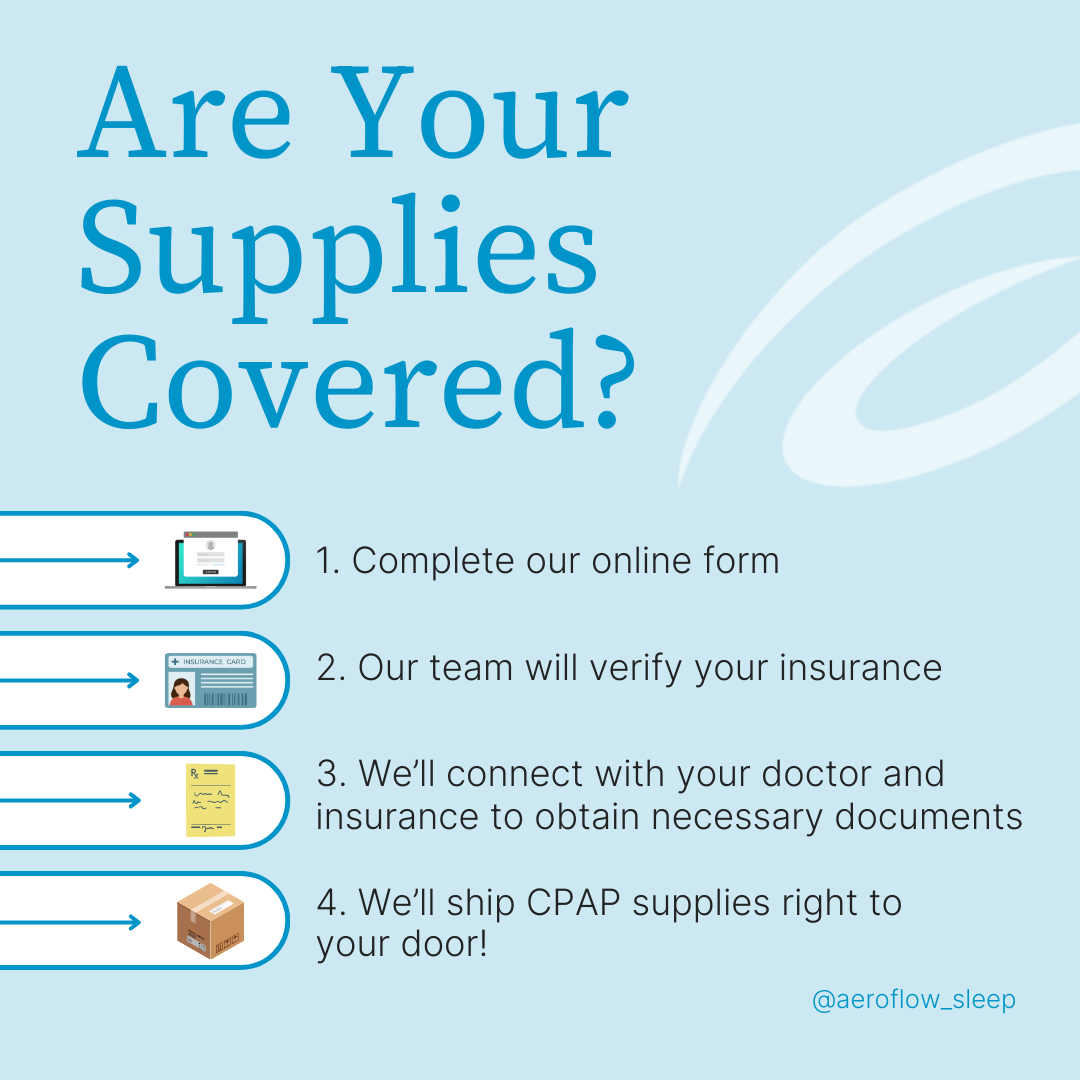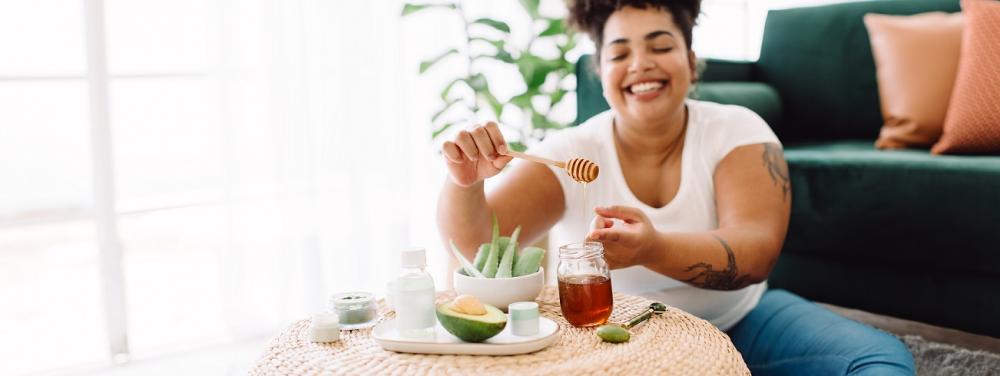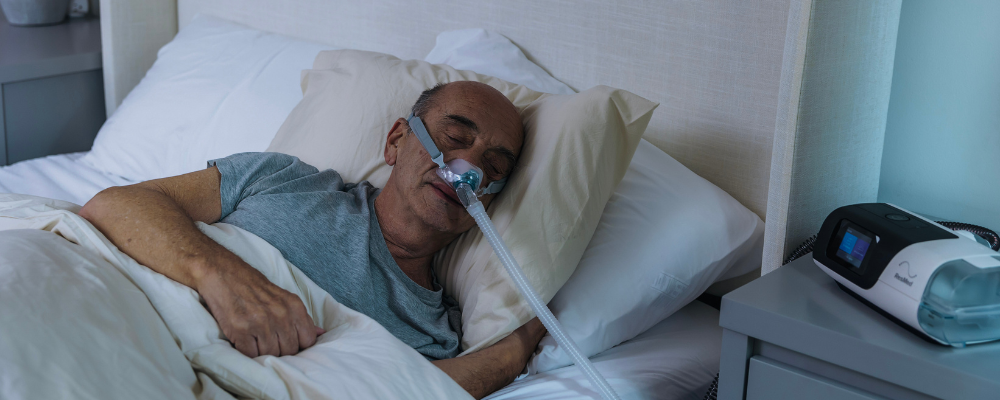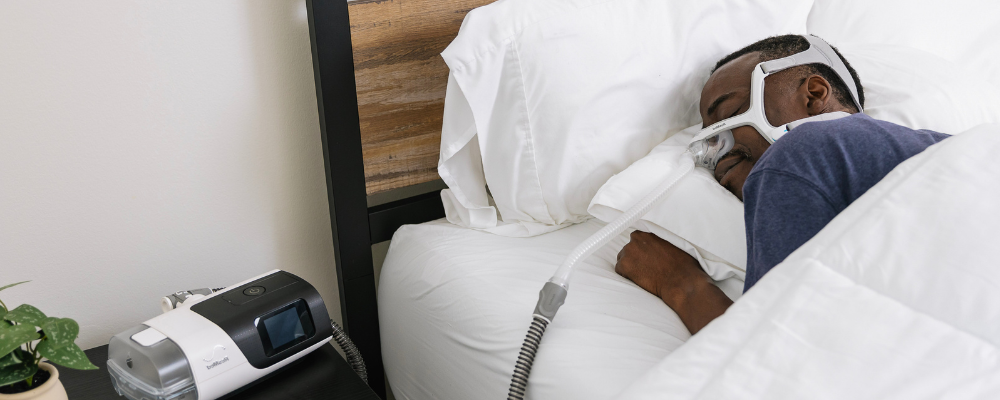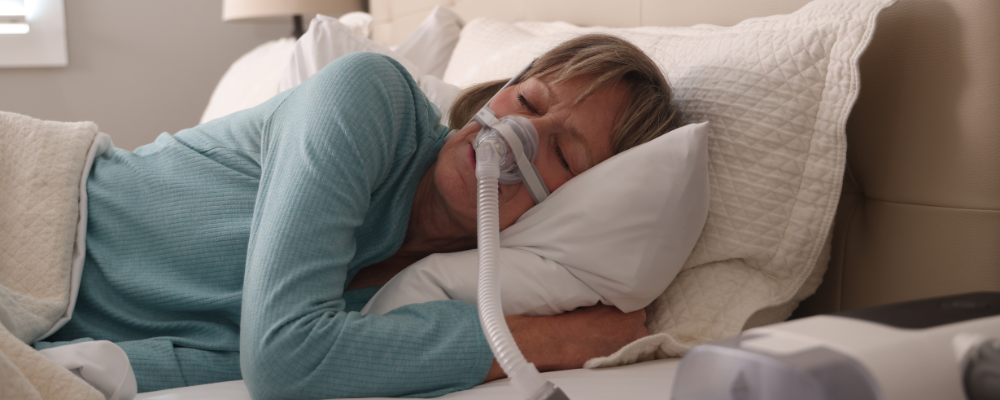Do you often feel sleepy during the day? Do you wake up with a headache or a sore throat on a regular basis? Or, does your bed partner constantly complain about your snoring? These symptoms are not something you should ignore. In fact, you may have a sleep disorder!
So, what should you do? The first step is scheduling an appointment with your healthcare provider to determine if you do indeed have a sleep disorder. Most likely, your doctor will recommend a sleep study, but no need to stress; today, we’re answering all of your sleep study questions. That way you know what to expect ahead of time.
What Is An Overnight Sleep Study (Or Polysomnogram?)
A sleep study, or a polysomnogram, is a test used to medically diagnose sleep disorders. It can be performed either in a sleep lab or in the comfort of your home. Your doctor will help you determine which type of sleep study is best for you, but here is a brief overview of the differences between the two:
In-Lab Sleep Study
For this option, you will spend the night in a sleep center. While that may sound a bit uncomfortable at first, sleep clinics have come a long way! They are designed with your comfort in mind and often resemble hotel rooms.
Once you arrive, your sleep specialist will apply sensors to your head and body. These sensors will record your blood oxygen levels, heart rate, breathing patterns, eye movements and leg movements. Additionally, your technologist may track your brain wave activity using a test called an electroencephalogram (or EEG for short) to help identify the cause of any disruptions throughout your stages of sleep.
In-lab sleep studies tend to be more accurate as they collect more sleep data than an at-home sleep test. Because of this, in-lab sleep studies can be used to diagnose a wide range of sleep disorders; including sleep apnea, narcolepsy, REM sleep behavior disorder, restless legs syndrome, and periodic limb movement disorder.
Pros:
- In-lab sleep studies provide accurate results and can help diagnose a variety of sleep disorders.
- They are completed under the supervision of a sleep specialist, which can be helpful if you have any questions or issues.
Cons:
- It can be uncomfortable to sleep in a new environment with sensors on your body.
- In-lab sleep studies are more expensive than home sleep studies.
At-Home Sleep Study
With advances in sleep medicine, sleep studies can also be performed in your own bedroom. Home sleep tests are typically best for diagnosing obstructive sleep apnea (OSA) and not other sleep disorders due to the limited amount of measurements recorded. However, home sleep studies are typically able to record breathing rate, airflow, oxygen levels, and heart rate.
Home sleep studies come in a variety of shapes and sizes. Most commonly, they include a pulse oximeter finger sensor and a device like a wristwatch to record your sleep data. As a result, they are less invasive and tend to be more comfortable.
Pros:
- Home sleep tests are often more affordable than in-lab sleep studies.
- They require less equipment/sensors.
- They can be completed in the comfort of your home.
Cons:
- Home sleep studies have limited diagnostic abilities. They can be used to diagnose sleep apnea, but not other sleep disorders
- Some insurance companies may not accept the results of a home sleep apnea test.
How Should I Prepare For A Sleep Study?
To prepare for a sleep study, here are a few things you can do ahead of time:
- Avoid drinking caffeine or alcohol the afternoon/evening of your sleep study
- Avoid napping in the afternoon/evening before your sleep study
- For an in-lab sleep study, do not use any hair spray, oil, or gel before your sleep study, as it may make it more difficult for your sleep specialist to place the electrodes on your head; additionally, pack as you would for a night in a hotel
What Happens After A Polysomnogram?
After your polysomnogram, your doctor will share if you have been diagnosed with a sleep disorder or not. If you have been diagnosed with a sleep disorder, your sleep study results will help your doctor determine the best treatment option for you.
Let's say you are diagnosed with sleep apnea. Your doctor will likely prescribe you continuous positive airway pressure (or CPAP) and use the data from your sleep study to determine the necessary pressure settings.
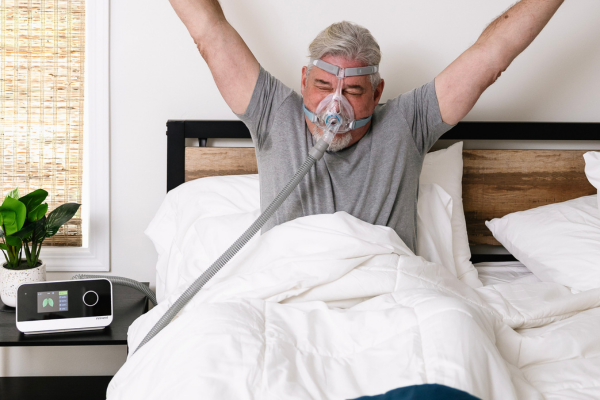

How Much Does A Sleep Study Cost?
The average cost for an in-lab sleep study is around $3,000. At-home sleep studies cost much less and can range anywhere from $150 to $1,000. That's a broad range! This is because simpler home sleep tests with less tracking tend to be on the cheaper side, but there are home sleep tests with more advanced technologies; often upwards of $500.
However, if you’re using your health insurance, the costs will vary based on the details of your plan. Your deductible, coinsurance rates, and out-of-pocket maximum may all affect the total cost of your sleep study.
Is A Sleep Study Covered By Insurance?
Many insurance providers—including Medicare—will cover a home sleep study if it’s considered medically necessary. You will typically need a prescription from your doctor before your sleep study, whether in-lab or at-home, which will help you gain the confidence of the insurance provider. However, beware of over-the-counter home sleep test kits; they may not be covered by your insurance. Contact your insurance company before purchasing the test to confirm your coverage options.
If you have been diagnosed with sleep apnea and are being prescribed CPAP therapy, Aeroflow Sleep can help! We specialize in supplying PAP machines, masks, and accessories through insurance. Check your eligibility for CPAP equipment today!
References
Evoy Davis, Lauren. “What to Know about At-Home Sleep Apnea Tests.” Edited by Chester Wu and Susan Stiles, NCOA Adviser, National Council on Aging, 16 Apr. 2024, www.ncoa.org/adviser/sleep/home-sleep-apnea-tests/.
“Preparing for a Sleep Study.” UCLA Health, UCLA Health, www.uclahealth.org/medical-services/sleep-disorders/patient-resources/patient-education/preparing-sleep-study. Accessed 26 Apr. 2024.
Pacheco, Danielle, and Abhinav Singh. “How Much Does A Sleep Study Cost?” Sleep Foundation, Sleep Doctor Holdings, 30 Oct. 2023, www.sleepfoundation.org/sleep-studies/how-much-does-a-sleep-study-cost.


